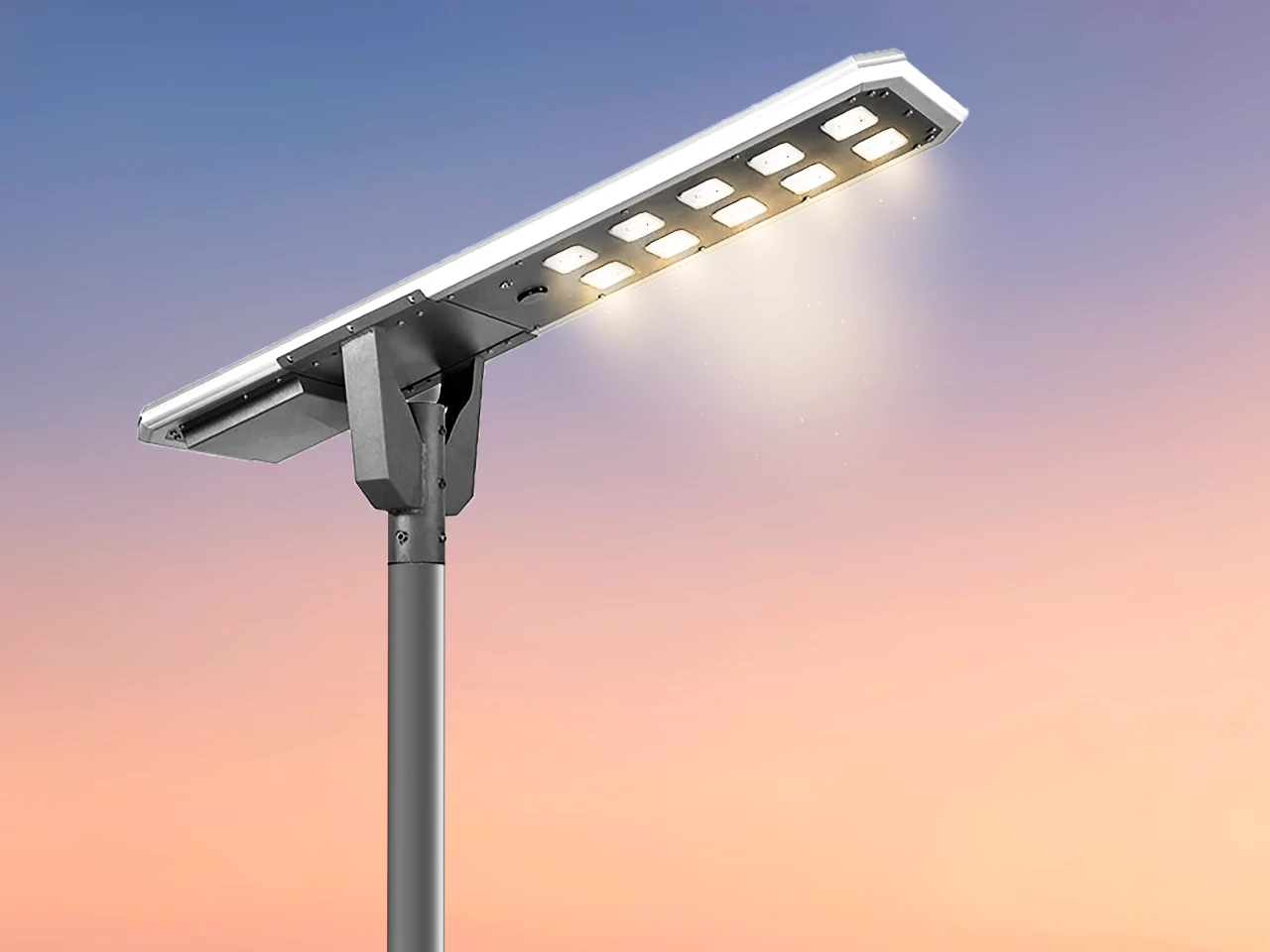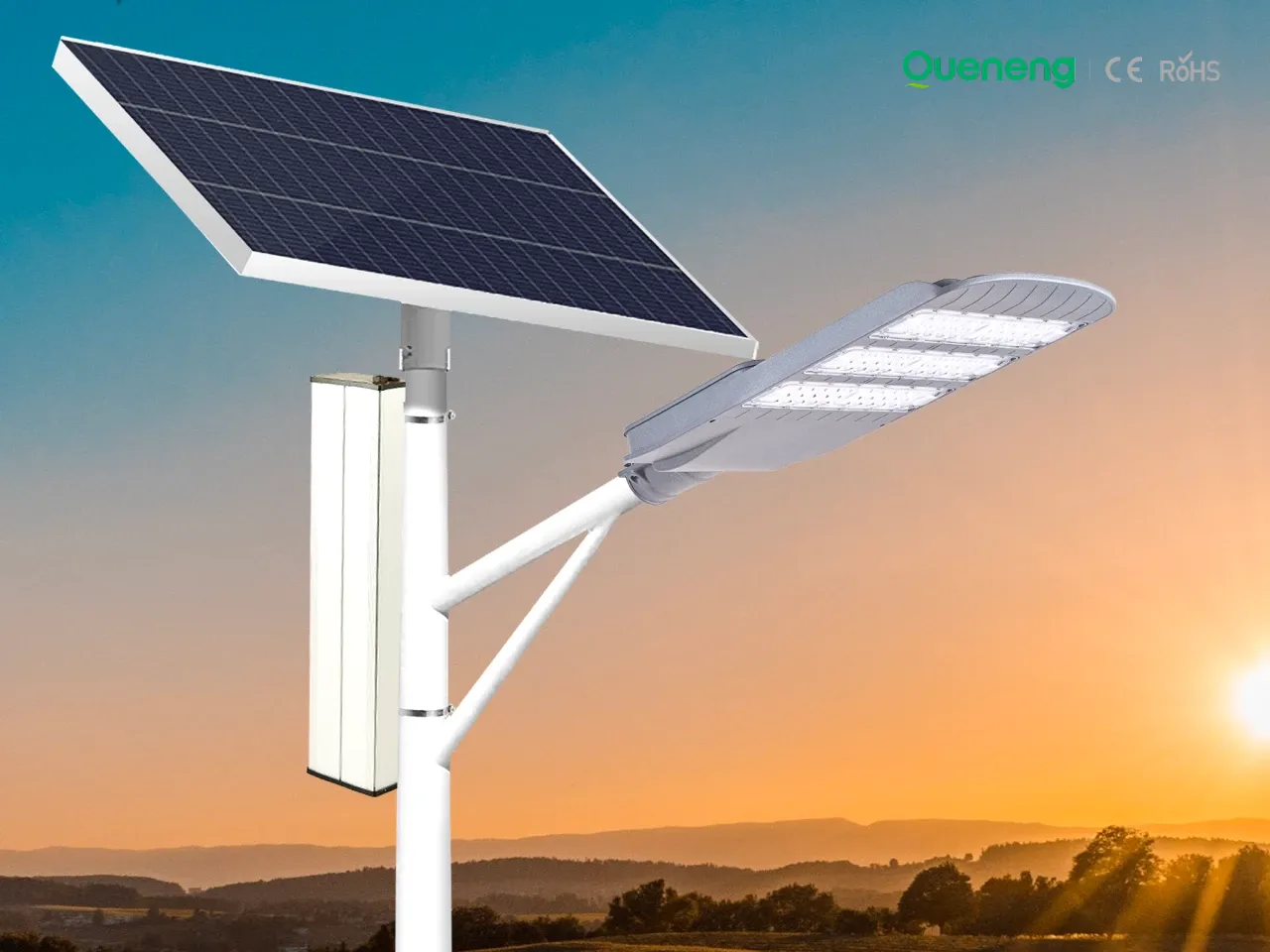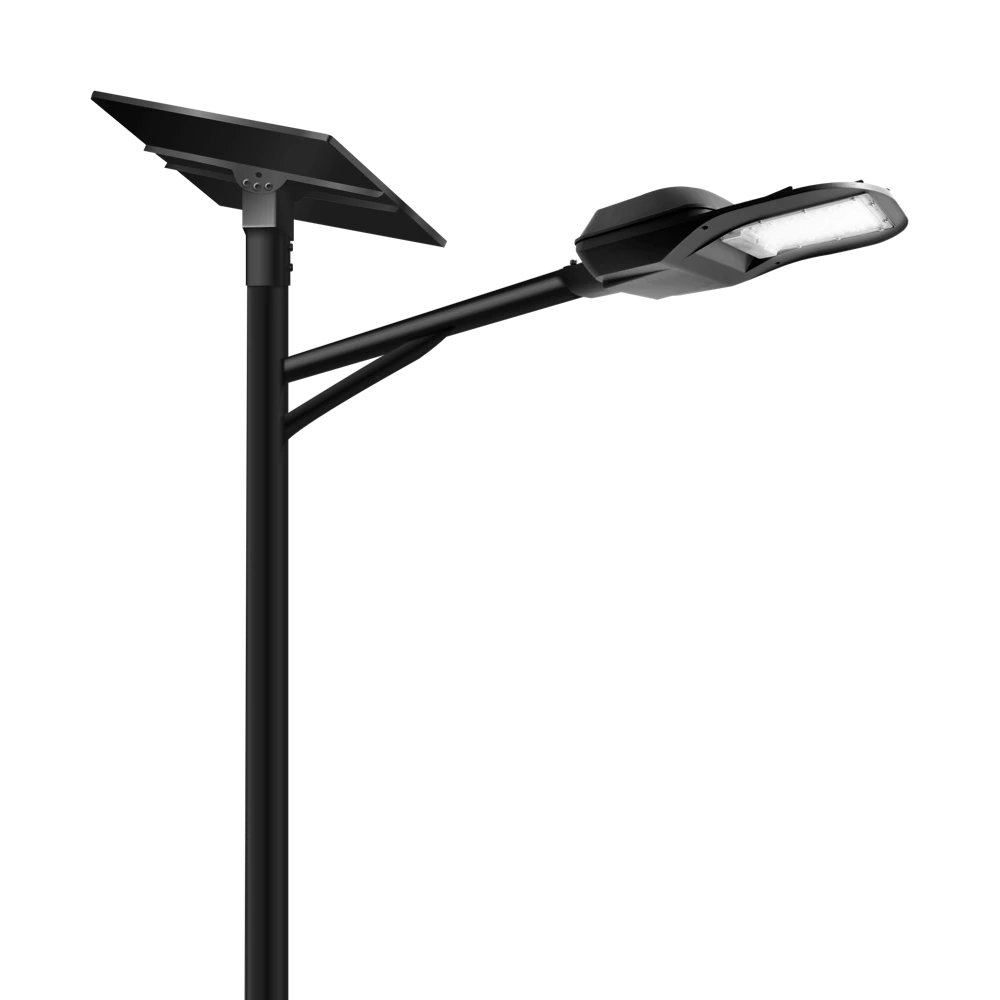Solar street lights are an increasingly popular solution for outdoor lighting needs due to their sustainability and long-term cost-effectiveness. However, not all solar lighting systems are created equal — one of the most critical factors determining performance is the quality of the solar panel.
In this article, we’ll explore how solar panel quality impacts the efficiency, lifespan, charging speed, and overall performance of solar street lights, and why choosing premium solar modules is crucial for maximizing ROI.
1. Solar Panel Efficiency
The efficiency of a solar panel determines how much sunlight can be converted into usable electricity. High-quality panels often have an efficiency rating of 18–22%, while lower-grade panels might only offer 13–16%.
Impact on solar street lights:
- Higher efficiency means faster charging of the battery during the day.
- More energy is available to power the light at night.
- Smaller panel size can achieve the same output, allowing for more compact designs.
2. Charging Speed and Battery Performance
Superior solar panels generate more current under the same sunlight conditions, reducing the time required to fully charge the battery. This ensures that the street light has sufficient power to last through the night, even during cloudy or rainy days.
Low-quality panels may not produce enough energy during short winter days or under partial shading, leading to:
- Incomplete battery charge
- Dim lighting or shorter operation times
- Increased battery degradation over time
3. Long-Term Durability and Warranty
High-quality solar panels are built with durable materials and better encapsulation technologies to withstand harsh environmental conditions like UV radiation, high humidity, salt mist, and snow.
Benefits of using reliable solar panels:
- 20+ years of lifespan with minimal degradation
- Consistent energy output over time
- Reduced need for maintenance and replacements
4. Temperature Coefficient and Climate Suitability
Premium panels come with optimized temperature coefficients, which means their performance drops less under high temperatures. This is crucial in regions with hot climates where cheaper panels may lose significant efficiency under extreme heat.
5. Impact on System Return on Investment (ROI)
Using poor-quality solar panels may reduce upfront cost, but:
- The total system output is lower
- The lifespan of the system is shortened
- Maintenance costs increase over time
Conversely, investing in high-quality solar modules increases energy production and ensures stable lighting for 8–12 years, significantly improving the ROI.
6. Compatibility with Intelligent Features
Many modern solar street lights include smart features such as MPPT charging, remote monitoring, dimming schedules, and motion sensors. High-quality solar panels provide consistent voltage and current output, which is essential for the proper function of these intelligent control systems.
Conclusion
The quality of solar panels is not just about the brand — it directly determines the reliability, efficiency, and lifespan of your solar street light system. Investing in premium solar modules, such as mono-crystalline panels with higher conversion rates and durability, is essential for ensuring optimal performance and long-term energy savings.
Whether you are deploying solar lighting in residential areas, highways, or industrial zones, never compromise on solar panel quality.
FAQ – Frequently Asked Questions
- Q1: How do I identify high-quality solar panels for street lights?
- A: Look for certifications like TUV, IEC, or UL, check the efficiency rating (ideally above 18%), and choose reputable brands with long-term warranties.
- Q2: Can low-quality solar panels damage batteries?
- A: Yes. Inconsistent or insufficient power delivery can lead to undercharging or overcharging, which accelerates battery wear.
- Q3: Is mono-crystalline better than poly-crystalline for solar street lights?
- A: Generally yes. Mono-crystalline panels have higher efficiency, better performance in low light, and longer lifespans.
- Q4: Will high-efficiency panels still work on cloudy days?
- A: Yes. While all solar panels perform better under direct sunlight, high-efficiency panels can still generate sufficient power in cloudy conditions.
- Q5: How long do high-quality solar panels last?
- A: Typically 20–25 years, with many retaining over 80% of their original output by the end of their service life.
-




























